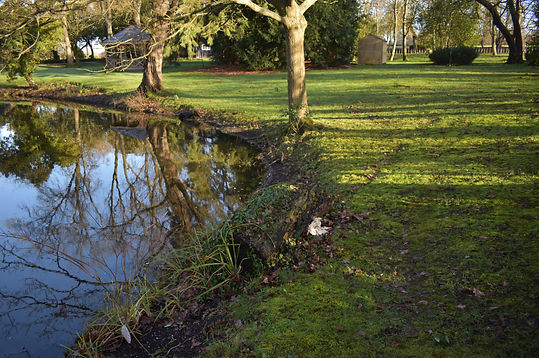
Photography A1:
Landscape
Definition and Theory:
Definition of Landscape...
all the visible features of an area of land, often considered in terms of their aesthetic appeal.
It originates from The Dutch word landschap meaning "region, tract of land”.
The first recorded use of landscape was in 1598, as a painters' term when Dutch artists were pioneering the landscape genre.
It was used in the artistic sense by the English to describe "a picture depicting scenery on land."
The Zone System...
Ansell Adams uses the zone system when photographing different landscapes. A way of controlling your prints’ tonal range. The process begins by previsualising your subject as having up to nine tone zones between but not including, pure black and pure white. The tonal range of final prints is adjusted by light readings at the shooting stage, and development at the processing stage.

Ansel Easton Adams was a landscape photographer and environmentalist known for his black-and-white images of the American West. He helped found Group f/64, an association of photographers advocating "pure" photography which favored sharp focus and the use of the full tonal range of a photograph. The Zone System is a photographic technique for determining optimal film exposure and development, formulated by Ansel Adams.


My Image Bank:









Photographer: Charlie Waite
AO1: Develop ideas through sustained and focused investigations informed by contextual and other sources, demonstrating analytical and critical understanding.
Charlie Waite was born 18 February 1949 and is an English landscape photographer noted for his "painterly" approach in using light and shade. Born in England, he worked in theatre and television for the first ten years of his professional life before moving to photography. He is noted for his square format images using a 6x6 Hasselblad. I enjoy the element of photographing nature and all natural features within different landscapes so I believe that I could follow the inspiration of his work and achieve successful landscape photographs in the style of his work/photos.




My Contact Sheets:









Throughout my contact sheets, I circled in green the images I think to be my best within the whole sheet. Whereas, I also created a red circle around the images in this sheet that I considered to be the worst of them.
My Best Images:















Images that need Improvements:




AO3: Record ideas, observations and insights relevant to intentions, reflecting critically on work and progress.
I have chosen these photographs out of my contact sheets as my images considered to need the most improvements. I believe that they need the improvements in aspects like the lighting, as well as making sure that I am capturing photographs that fit the topic completely. For example, I do not believe that most of these were following these theme of landscapes.
My Editing Process:




AO2: Explore and select appropriate resources, media, materials, techniques and processes, reviewing and refining ideas as work develops.
During my editing process I created some to be black and white and a variety of others to be either less or more saturated. In my opinion, these editing choices gives all of my landscapes to have different effects within each frame.
My Edited Images:

_PNG.png)













_PNG.png)

AO4: Present a personal and meaningful response that realises intentions and, where appropriate, makes connections between visual and other elements.
Overall, my landscape project was believed to be very successful and followed the style and inspiration of my photographer; Charlie Waite. I enjoyed creating the different effects and moods within all the different landscapes, as well as the nature I liked to capture. Nature and landscapes are one of my favourite topics/subjects so I believe that this was a topic/subject that I could enjoy as well as achieve appropriate photographs for the chosen topic.